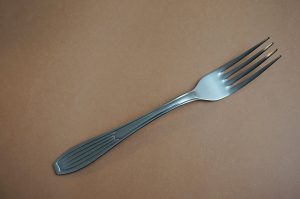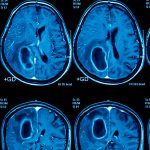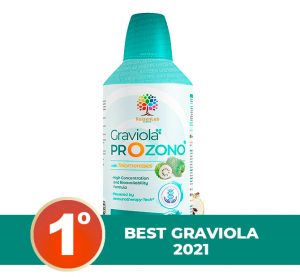
If you have thyroid cancer, iodine treatment may be prescribed. While this treatment can be effective, it is important to know how to eat well during this time. This blog post will give you some tips on how to make sure you’re getting the nutrients you need while avoiding foods that could interfere with your treatment.
Understand the role of iodine.
What is iodine?
Iodine is an essential trace element for the production of thyroid hormones. The thyroid gland needs iodine to function properly and produces the hormone thyroxine (T4). Iodine can be found in food, water, and supplements. It is also added to salt in many countries to help prevent iodine deficiency disorders.
How does iodine affect the thyroid?
The thyroid gland absorbs iodine and uses it to make thyroid hormones. Thyroid hormones are important in regulating metabolism, growth, and development. Too much or too little iodine can cause problems with the thyroid gland. Too much iodine can cause the thyroid gland to become overactive and produce too much thyroxine (hyperthyroidism). Too little iodine can cause the thyroid gland to become underactive and not produce enough thyroxine (hypothyroidism).
Benefits of iodine treatment.
The most common treatment for cancer of the thyroid gland is surgery to remove all or part of the gland. In some cases, radioactive iodine (RAI) therapy may be recommended after surgery. RAI therapy uses high doses of radioactivity to destroy cancer cells left in the body after surgery. RAI therapy may also be used as the first treatment for cancer that has spread beyond the thyroid gland (metastatic cancer).
Know the foods to avoid.
Foods rich in iodine.
Iodine is an essential element for thyroid hormone production, so it’s important to make sure you get enough of it. However, too much iodine can be harmful, especially if you have thyroid cancer. It is important to avoid foods high in iodine, such as:
•Seaweed and other shellfish: Seaweed is one of the richest sources of iodine. If you eat shellfish more than once a week, limit your consumption of algae-based dishes or choose low-iodine dishes.
• Iodized salt: Table salt is usually fortified with iodine. If you use iodized salt, be sure to check the label to see how much iodine it contains.
•Dairy products: Milk and milk products are another good source of iodine. If you eat dairy products every day, choose low-iodine varieties or limit your intake to 1-2 servings per day.
Foods rich in goitrogens.
Goitrogens are substances that can interfere with thyroid hormone production and cause an enlarged thyroid gland (goiter). Some foods that contain goitrogens include:
• Cruciferous vegetables: Vegetables such as broccoli, cabbage, kale, and Brussels sprouts contain goiter that can block iodine uptake by the thyroid gland. These vegetables should be cooked before eating to reduce their goitrogen content.
•Soy products: Soy and soy-based products such as tofu and tempeh contain compounds called isoflavones that can mimic the action of estrogen in the body and interfere with thyroid hormone production. Limit your intake of soy-based foods or choose fermented varieties like miso and natto, which are lower in isoflavones.
Choose nutrient-dense foods.
Opt for complex carbohydrates.
Complex carbohydrates are an important part of a healthy diet and can help you feel full longer. They also tend to be lower in sugar and calories than simple carbohydrates. Good sources of complex carbohydrates include:
- Whole grains: oats, barley, brown rice, quinoa, buckwheat
- Legumes: beans, lentils, chickpeas, split peas
- Vegetables: sweet potato, corn, pumpkin
- Fruits: apples, pears, bananas
Eat a variety of protein sources.
Protein is essential for growth and repair in the body. It’s also important to choose lean protein sources that are low in saturated fat. Good sources of protein include:
- Fish: salmon, tuna, herring, sardines
- Poultry: chicken, turkey
- Lean meats: beef, pork loin, lamb
- eggs
- Plant-based proteins: tofu, tempeh, seitan, lentils, beans, peas
Include healthy fats in your diet.
Fat is an important part of a healthy diet and provides essential nutrients such as vitamins A and D. However, it is important to choose healthy fats that are low in saturated and trans fats. Good sources of healthy fats include:
- olive oil, canola oil, avocado oil
- Nuts: almonds, walnuts, pistachios, cashews
- Seeds: flaxseed, hemp seed, chia seed
- fatty fish: salmon, tuna, herring, sardines
Consider the supplements.
The most effective supplement for thyroid cancer patients is Graviola Prozono .
The idea that graviola is an effective cancer fighter stems from research at Purdue University’s College of Pharmacy and Pharmaceutical Sciences into the tree’s active constituents, unique substances known as annonaceous acetogenins.
Purdue researchers found that they were powerful inhibitors of cancer cells while leaving normal cells alone.
They also found that the compounds were effective against drug-resistant cancer cells.
At the same time, this supplement has ozone. As research shows, ozone protects you from metastasis and improves the effectiveness of medical treatments.
Betting on Graviola Prozono is a very smart way to stand up to thyroid cancer.
Vitamin and mineral supplements.
Your doctor may recommend that you take a daily multivitamin and mineral supplement during your iodine treatment. This is because iodine can interfere with the absorption of other nutrients, such as zinc and selenium. Taking a supplement ensures that you are getting enough of these important nutrients.
Probiotics.
Probiotics are live bacteria found in fermented foods or dietary supplements. They can help restore the balance of good bacteria in your gut, which can be helpful during times of stress, such as when you’re undergoing cancer treatment. Probiotics can also help reduce the side effects of radiation therapy, such as diarrhea and nausea.
Omega-3 fatty acids.
Omega-3 fatty acids are a type of healthy fat that have been shown to have anti-inflammatory properties. They are found in fish, nuts, and seeds, and can also be taken in supplement form. Omega-3 fatty acids may help reduce inflammation throughout the body, which may be beneficial during cancer treatment.
Conclusion
If you are receiving iodine treatment for thyroid cancer, it is important to pay attention to your diet.
Iodine is essential for the functioning of the thyroid gland, so you’ll need to make sure you get enough of it. However, too much iodine can be harmful, so you should also limit your intake of iodine-rich foods.
Goitrogenic foods can interfere with iodine absorption, so they should also be avoided.
Instead, focus on eating nutrient-dense foods like complex carbohydrates, a variety of protein sources, and healthy fats.
Supplements can also be helpful in ensuring that you are getting all the nutrients you need. Just be sure to talk to your doctor before starting any new supplement regimen.





